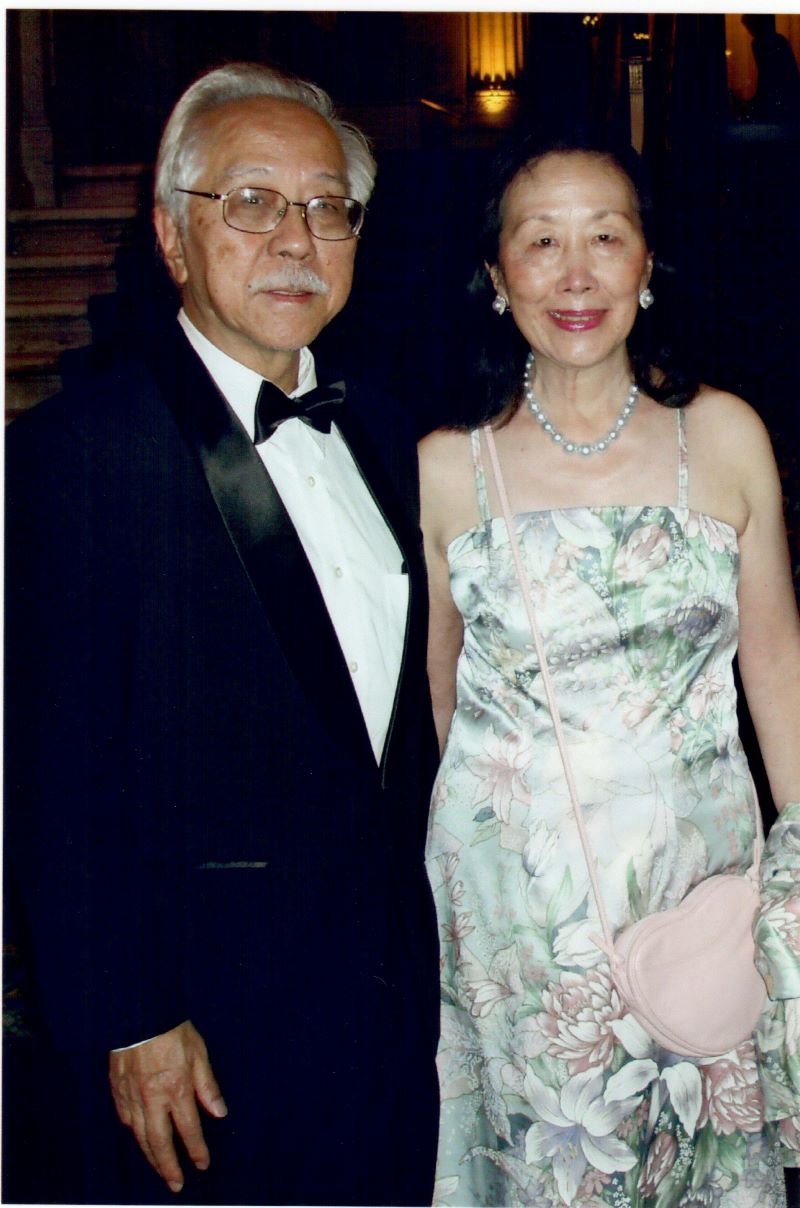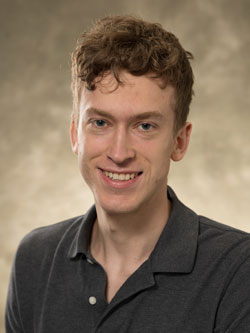Article
 Thomas and Margaret Huang
Thomas and Margaret HuangTwo recent, significant gifts to the University of Illinois celebrate the remarkable lives of late Professor Emeritus Thomas Huang and his wife, Margaret.
Before passing away April 25, Thomas Huang established the Thomas and Margaret Huang Endowed Professorship in Signal Processing and Data Science in the Department of Electrical and Computer Engineering. His wife, Margaret Huang, passed away in January 2020.
The Huangs’ children and their respective spouses — Caroline Huang and Mike Phillips; Marjorie and Craig Young; Thomas T. Huang; and Gregory Huang and Mara Vatz — recently made a contribution that created the Thomas and Margaret Huang Graduate Fellowship at the Beckman Institute for Advanced Science and Technology. It’s a part of the already-established Thomas and Margaret Huang Fund for Graduate Research, which alumni created in the Huangs’ honor nearly 10 years ago.
"As my siblings and I mourn the loss of our parents, we take comfort in knowing that their legacy will endure with the Huang endowed professorship and the Huang graduate fellowship,” their son, Thomas T. Huang said. “We all know how brilliant our dad was, but we also know how he and our mom created a great community and spirit of collaboration at the U of I. We will always remember a Zoom call where nearly 40 students and colleagues told our dad that he and our mom taught them not just about research and science, but how to be good people in this world."
"These generous and thoughtful gifts from the Huang family will support students and their advisers to jointly pursue research in the area of data science and signal processing in perpetuity, continually forming new bonds of understanding and wisdom across generations," said ECE Department Head Bruce Hajek.
In his long career as a professor of electrical and computer engineering, Huang was ranked among the world’s most influential researchers and mentored more than 100 students. He was an inaugural faculty member at the Beckman Institute.
Huang came to Illinois in 1980 after already having previously taught at Purdue and MIT. Throughout his career, Huang pursued work in pursued image compression and quality, as well as computer vision. More recently, he worked with deep learning algorithms to identify images without labels.
Margaret was his partner in creating a community for Thomas’ students, especially those who lived far from their families, said Lolita Chuang, wife of late Illinois ECE Professor Shun-Lien Chuang.
“They both shared a love for travel, music, and family,” Chuang said. “Professor Huang would invite students to their home on Father’s Day. … Wherever (Thomas and Margaret) traveled, they wanted former and current students to be part of their family and their experience.”
Many of those students shared fond memories, anecdotes, and tributes on a special website dedicated to the Huangs.
Yong Rui (Ph.D., ’99, electrical engineering) wrote of joining the research group and tackling the new field of digital libraries, and how Huang’s belief in interdisciplinary collaboration changed Rui’s life.
“Tom was very open and was always thinking about new ways in addition to his own research field,” he wrote. “He encouraged me to join Professor Sharad Mehrotra’s group to collaborate and get different perspectives.
“This turned out to be some of the most important guidance in my professional life. Drawing from Tom’s guidance on computer vision, Sharad’s guidance on databases/information retrieval, and my own background in control theory, I was able to develop relevance feedback into image search. … Without Tom’s trust in me and taking on a student whose background was not in computer vision, and without Tom’s guidance on the interdisciplinary nature of research, this new research direction would not have been possible.”
Alan Bovik (B.S., ’80; M.S., ’82; Ph.D., ’84; electrical engineering) remembers Thomas and Margaret Huang as “inseparable,” and Thomas being “the quiet center point of every meeting and conference.”
“His current and past students and mentees would always gather to be with him,” Bovik said, adding that he would introduce his own students, who have also shared fond memories of those times. “He brought people together and made everyone better, and it is hard to realize that he has gone. But knowing that such a man existed and touched the lives of so many and so profoundly, one also feels that his was a life to celebrate, even as we sorrow.”
Named professorships allow Illinois ECE to recruit and retain promising researchers and teachers and encourage them to expand their careers here. The income from named professorships may be used to supplement a professor’s salary or support his or her research needs.
ECE Professor Minh Do has been named the inaugural Thomas and Margaret Huang Endowed Professor in Signal Processing and Data Science, and said he was happy and grateful for the honor. Do is an affiliate faculty member at Beckman.
“Carrying a professorship under their names will be my great pride and responsibility to continue their legacy and that of ECE and Illinois forward,” he said.
The Huang family and generous alumni have been supporting graduate student awards at Beckman for years. The new fellowship at the Beckman Institute offers even more concentrated support for the graduate student who receives it.
 Paul Bogdan
Paul BogdanPaul Bogdan, the inaugural winner of the Thomas and Margaret Huang Graduate Fellowship, is pursuing a Ph.D. in psychology, with a focus on cognitive neuroscience. He works with psychology faculty members Florin Dolcos, Sanda Dolcos, Aron Barbey, and Kara Federmeier, statistics Professor Steven Culpepper, and business administration Professor Jeffrey Loewenstein.
He has collaborated with Huang’s lab to develop neuroimaging analytic procedures using machine learning. His proposed research aims to use statistics and machine learning to better understand the behavioral and neural processes underlying the learning of trust and the formation of healthy and productive social relationships.
"Being the first winner of this award is an extraordinary honor,” Bogdan said. “It provides me the opportunity to fully embrace my computational background and apply it in cognitive neuroscience."
The fellowship is part of a fund at Beckman that has supported graduate student researchers for years. James J. Kuch (M.S., '94, electrical engineering) established the fund, and he and Chang Wen Chen (Ph.D., '92, electrical engineering) championed it among alumni, raising an endowment that allowed the first awards to be granted in 2014.
Chen recalled Thomas Huang’s “subtle yet profound influence” and his love for Margaret, remembering that Thomas went home for lunch every day. It was one devotion of many that helped fuel their marriage for more than 60 years.
Thomas Huang had nearly 120 graduate students, Chen said, and Margaret knew them all by name.
“That was how close Margaret with these students. Tom and Margaret often knew the names of the students’ spouses and children, too, many years after their graduation. “That’s how dedicated they were to their students,” he said. “They treated them as their family, as their kids.
“In every step of my life … you can find influence from Tom. In my academic achievements, in advising students, I cannot match him. It’s not possible. He had such vision and influence,” Chen said.
Thomas and Margaret Huang’s children said their parents’ legacy lives on in the students Thomas Huang taught.
"We are reflecting on the impact of our dad's research and the many students he taught and advised and the many colleagues he collaborated with — and also on the positive, loving community that our dad and mom fostered,” Thomas T. Huang said. “That community lives on at the U of I and, really, all over the world."
Anyone interested in supporting the professorship or graduate student award and fellowship may contribute to the University of Illinois Foundation. Please designate your support to either the Thomas and Margaret Huang Endowed Professorship in Signal Processing and Data Science Fund or to the Thomas and Margaret Huang Fund for Graduate Research. Checks may be mailed to the University of Illinois Foundation lockbox at P.O. Box 734500, Chicago, IL 60673-4500. Or, give online.
Beckman Institute for Advanced Science and Technology